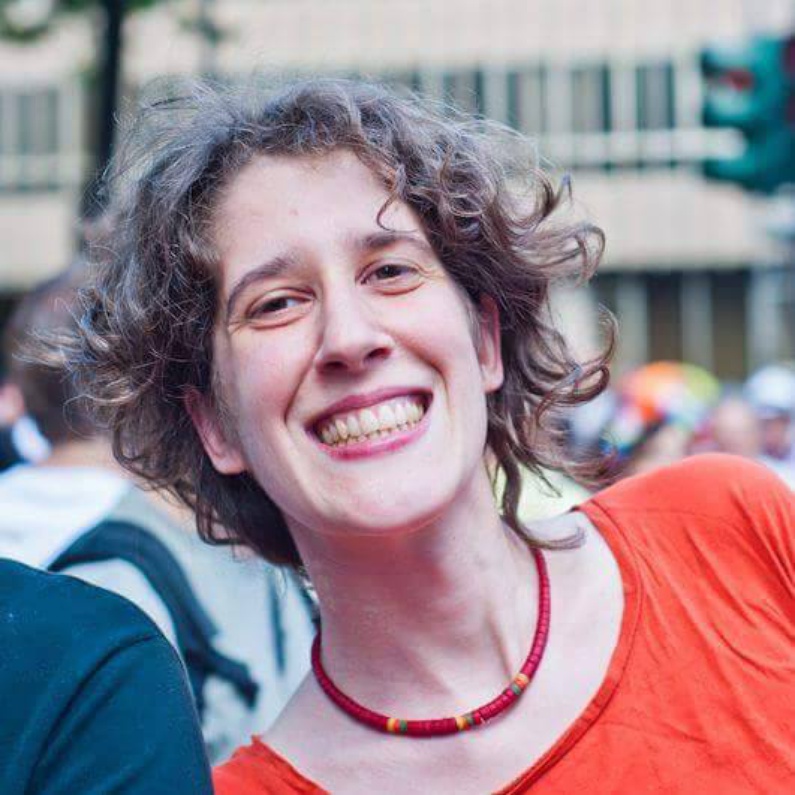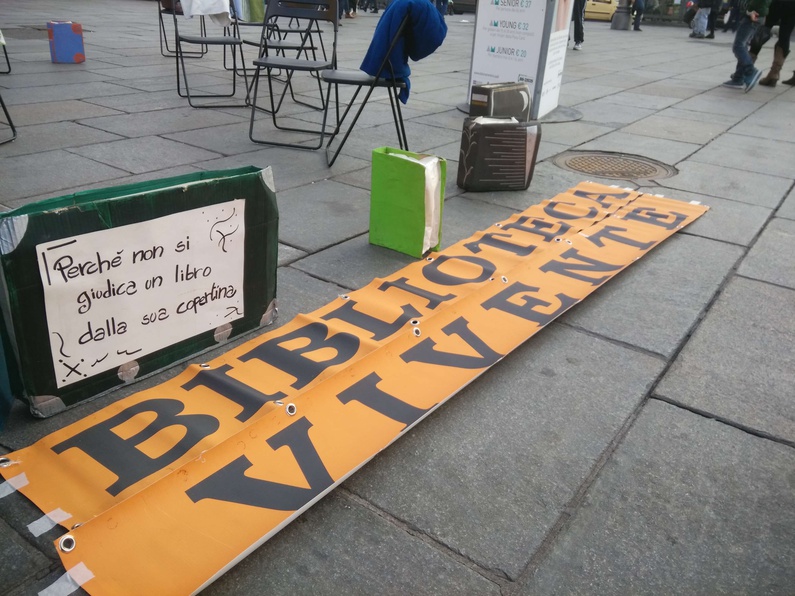
Living library: don't judge a book by its cover
Published on
Translation by:
Juliane BüchnerThe living library is an initiative with readers and books. Book though, that are actual people in the flesh, telling their stories from the first person perspective to fight discrimination and take down the walls of stereotypes.
You don't judge a book by its cover – or even by its title. Not even when said title is voluntarily provocative. “Muslim immigrant”, for instance, or “gay gypsy”: titles of journals rather than books, that take prejudices and evoke stereotypes more or less near and dear to each of us. But the people in the living library – the real ones, of flesh and blood, dreams and past – are much more than the labels attached to them.
Getting to know these persons “apart from their title” is the idea behind the biblioteca vivente, an activity that has been revived in all european countries for about 15 years. The latest one took place in Turin on Sunday, 24 January on the Piazza Castello in a series of events and flashmobs of the campaign “Attenti a NON ripetere” (Take care not to repeat), organized for the International Holocaust Remembrance Day.
 Marta Gianello Guida, president of the association Giosef Unito explains: “The living library was born specifically to oppose racism and discrimination using dialogue and confrontation”. For one who has never participated, the elements are the same as in any library: with librarians (staff) and a reading area (outlined by tents or coloured lines). Only difference: you do it outside, and anyone can stop by and read. And, well, the books tale tales in the truest sense of the word: “it's about people who, based on one aspect of their identity, give themselves a title and tell their story.”
Marta Gianello Guida, president of the association Giosef Unito explains: “The living library was born specifically to oppose racism and discrimination using dialogue and confrontation”. For one who has never participated, the elements are the same as in any library: with librarians (staff) and a reading area (outlined by tents or coloured lines). Only difference: you do it outside, and anyone can stop by and read. And, well, the books tale tales in the truest sense of the word: “it's about people who, based on one aspect of their identity, give themselves a title and tell their story.”
Talking Books
Passengers get a book list (whose titles, like those at the beginning of the article, are chosen by the books themselves) and after choosing one to read they are accompanied by the “living books”. “The objective – Gianello Guida continues – is to contrast discrimination and to make people think about stereotypes and the difference between a group and a single person”. During the “reading”, the reader can chat and ask questions to and about these categories he may perhaps have read a lot about in magazines but doesn't meet in everyday life. The idea is that once you know people, you are less likely to fall into the trap of discrimination: “we don't try to convince people or change their opinions, we rather provide the books with an opportunity of speech they usually don't get.”
Like every library, this one has rules. The basic point is to create a secure space for reader and book to permit the type of interaction that is not easy in everyday life. Hence, the readers can ask any question they like, but the books can decide not to answer if they don't want to. Even though the books are actually educated in confronting personal and complex questions about themselves and their own identity, unpleasant situations can arise, although “in quasi ten years of experience – Gianello Guida stresses – I can count them on the fingers of one hand, and more or less all of them had to do with sexual orientation”. Morbid, aggressive, or simply out of place reactions, like inappropriate offers to some books. Fortunately, the staff is trained to intervene and save their books from their readers as well.
 “I prefer to think of the many nice episodes, though. I specifically like to remember one. This time I was a book, and my title had to do with sexual orientation. The reader was an Armenian teacher and began by stating that homosexual people were ill. After we talked the girl told me that the story of illness was taught to her like that and that she had always believed it to be true. She also said that, from now on, she would tell her students in Armenia about our encounter and what she had learned. The idea of having permitted, in my own little way, a change in the schools of a different country is perhaps the biggest conquest of all”.
“I prefer to think of the many nice episodes, though. I specifically like to remember one. This time I was a book, and my title had to do with sexual orientation. The reader was an Armenian teacher and began by stating that homosexual people were ill. After we talked the girl told me that the story of illness was taught to her like that and that she had always believed it to be true. She also said that, from now on, she would tell her students in Armenia about our encounter and what she had learned. The idea of having permitted, in my own little way, a change in the schools of a different country is perhaps the biggest conquest of all”.
And this is also the reason why the living library was welcomed and implemented on a day like the Holocaust Remembrance Day, when side by side with the remembrance of what has passed, it is vital to use instruction and education to make sure it can never happen again.
For further information please contact the network of the Biblioteca vivente in Italy at retebibliotecavivente@gmail.com
Translated from Living library: non giudicare i libri dalla copertina



